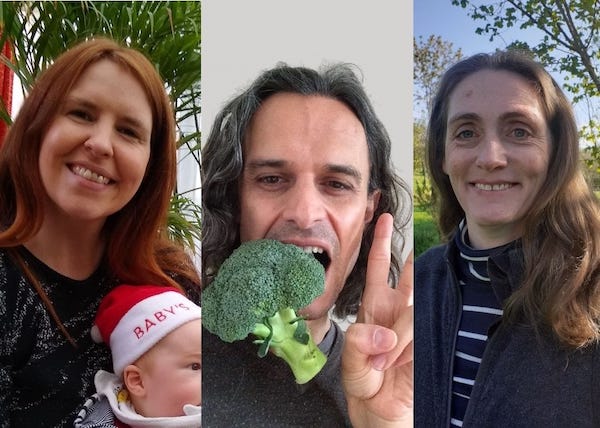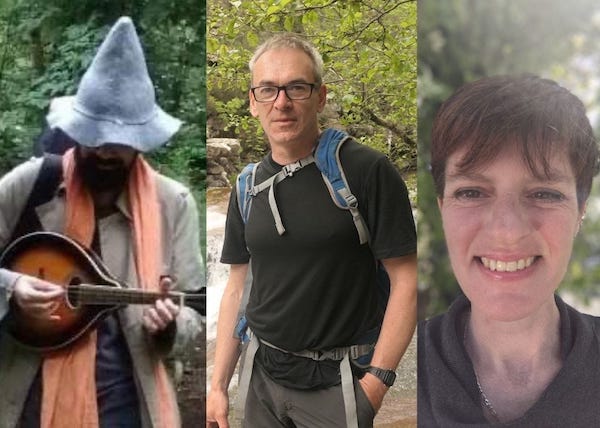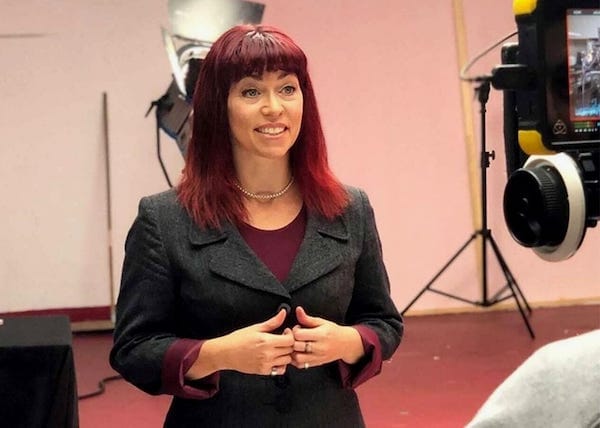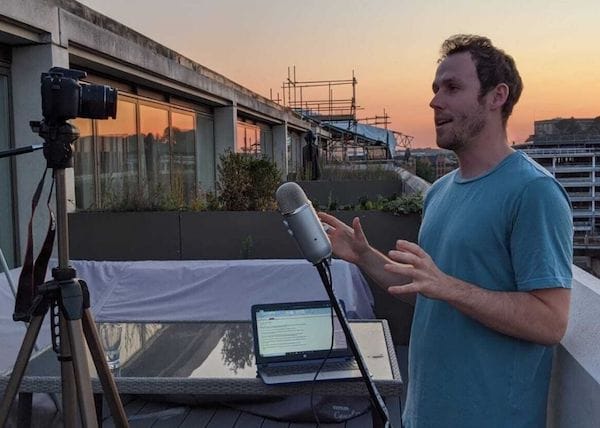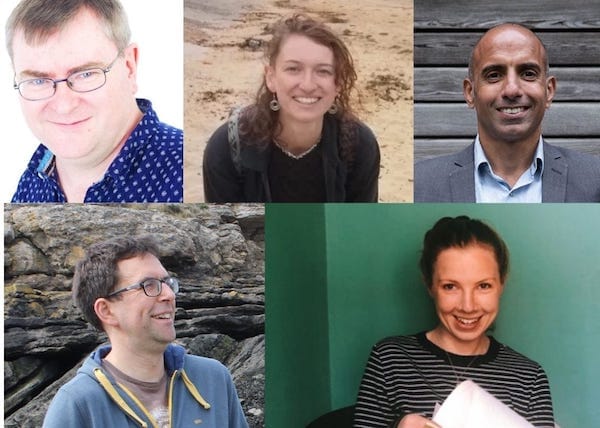This is episode three of our 2021 podcast series. Listen to the episode here and find other episodes and previous series here.
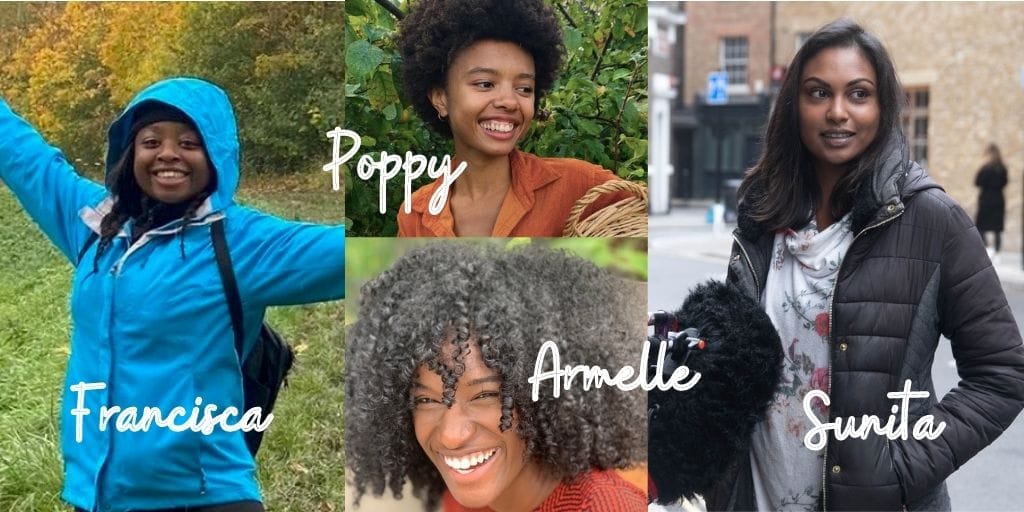
This month, Sunita and Armelle from our team are talking to Poppy Okotcha and Francisca Rockey.
Francisca is the founder of Black Geographers, which creates a platform to allow Black geographers in the UK and around the world to connect.
Poppy is a grower, forager and cook, with a mission to inspire reconnection to nature through food and open up conversations to those who don’t feel that the conversation is for them, including all minority groups.
The conversation covers questions including, How does a flight free pledge impact people who have families split across the globe, and, What do you think about diversity in the environmental movement?
Armelle:
I’m from the Caribbean and I want to see my family but I know that these islands are at high risk of sea level rise. Unsustainable behaviours might lead to the disappearance of my island and culture, which really saddens me.
Francisca:
I have family in Malawi and Zimbabwe, and I haven’t been back in years. Is it just our sole responsibility when there are people who don’t have family back home but fly for leisure? It’s definitely a challenge to take the flight free pledge but it's something that I want to do to show I’m being as responsible as I can be and others will see that and be inspired to do the same.
Sunita:
My parents are from Mauritius. To go there without flying would take weeks! If you choose not to fly you miss out on seeing family generally but also those big events like weddings so it is difficult.
Poppy:
My heritage is mixed – I’m white British and Nigerian. Even just being able to consider the option of catching a flight is a privilege. When I think about Flight Free I think it's tangled up with privilege. You have to consider when it’s appropriate to take that opportunity and know when it’s appropriate not to use your privilege. Sometimes I think I could go over and see my dad, but at what cost?
Armelle:
It’s quite alarming that some people see taking a flight as a right rather than a privilege. It's really just a tiny portion of the population that can afford to live that type of lifestyle. It’s not a right and we can’t treat it as such. We have the responsibility to make the right choice.
Francisca:
We’ve seen the issue of privilege during Covid. People flying to our heritage islands/countries which are heavily impacted by the climate crisis without taking into consideration that this is someone’s home, it's not just a holiday destination. This has made me reflect on what my travelling behaviours are going to be like post-Covid.
Poppy:
I plan for the future bearing in mind that flying is not really a responsible decision, so that informs where I want to live in the long run, in relation to where my family is. Maybe in the future we will relocate or resettle where the majority of our family is, rather than continue to dip in and out by plane.
Sunita:
In Mauritius there is coral bleaching. In other parts of the world there’s more flooding, more cyclones, more extreme weather. Whereas in England we might get some inconsistent weather patterns but that’s kind of it. I’ve deliberately not researched the climate impact for Mauritius because of my emotional attachment.
Armelle:
In Guadeloupe, there are many tiny islands in the archipelago, and the majority of them have already disappeared. I was asking my grandmother about one of the islands and she said it's gone, it doesn’t exist. It’s heartbreaking. Also the hurricane season is getting longer. It is definitely a justice issue. These people are the people who live the most sustainably.
Poppy:
On the issue of flying being a right, if we see it as a right then it becomes a sacrifice not to do it, but if we see it as an extra thing then it shifts from sacrifice to doing the right thing. I think a lot of us who live overseas have a disconnect with what’s going on back home which means there’s less of a fuel to change our habits.
Francisca:
I remember the floods in Zimbabwe in 2016/17. I’ve never known there to be floods in Zimbabwe before. I suddenly realised the climate crisis is making a move in my heritage country and I should be more conscious.
Armelle:
It’s the people who contribute the least to the climate crisis who are hit the hardest, but that doesn’t mean that it’s not everybody’s responsibility to fight against it. Developed countries can switch to a more sustainable system. But for the countries that are so-called ‘developing’ haven't had the ‘chance’ to use these fossil fuel systems to develop their own country. So that’s an extra challenge to get to that stage of development without using the same damaging systems that the western world have been using.
Poppy:
I was discussing this with my grandma the other day. She said, sometimes I wonder what beautiful things we would have developed if we’d been left alone and the western way of doing things hadn’t been brought to us. In the shift to more sustainable living, maybe it’s the indigenous cultures that have the answer.
Francisca:
I feel strongly about this especially related to geography. Why do we think western knowledge is the best knowledge, and why is it more credible than all histories and indigenous practices? We need to de-colonise our thinking when it comes to development.
Armelle:
Let’s talk about diversity in the geography/environmental movements. We know which faces are pushed forwards in the environmental movement but I know that these are not the only faces.
Francisca:
I find that so frustrating. There are so many people around the world and it’s predominantly women of colour who are doing the work and leading the climate revolution, so why don’t we hear about them? Access to resources to progress themselves within the movement are missing.
Podcast recommendation: Poppy and Francisca both recommend For the Wild Podcast
Final question: what keeps you going as a climate activist?
Poppy:
For me it's connecting with the natural world. That really helps when it comes to taking those steps like stopping flying.
Francisca:
For me it's being more bold in talking about the climate crisis. People are not kind to you if you are a black woman. But that doesn’t mean I shouldn’t speak.
Thank you so much to our amazing guests. You can find out more about them here: Francisca’s Instagram and Poppy’s Instagram.
Listen to the full episode here and find other episodes and previous series here.
Voiceover: L. Sophie Helbig. Soundtrack: Chasing Balloons by Yeti Music.
